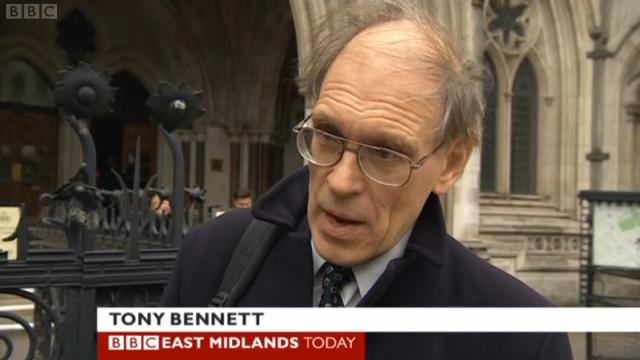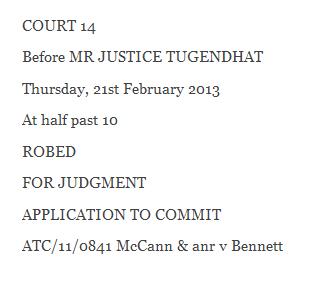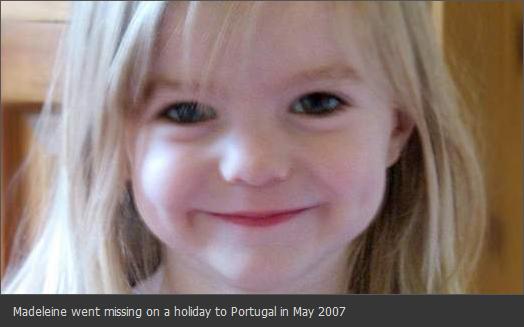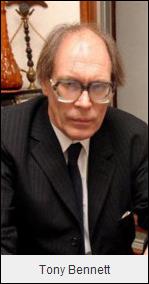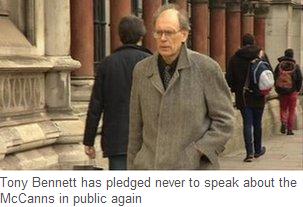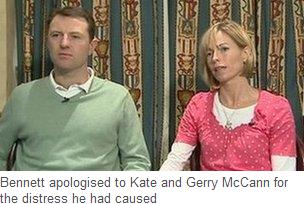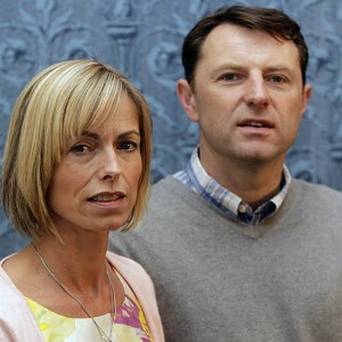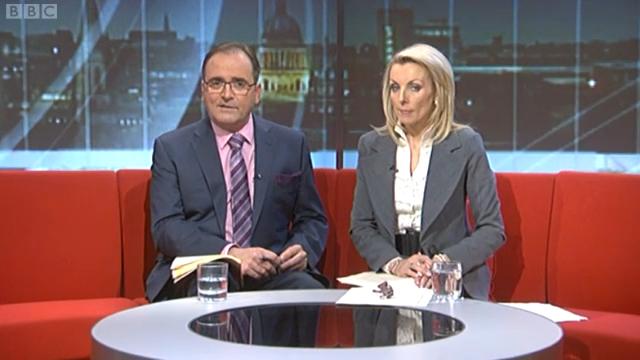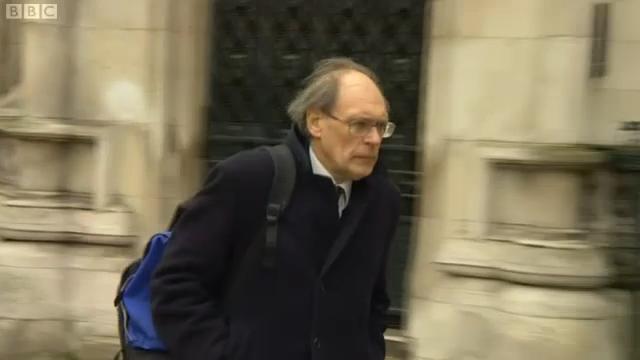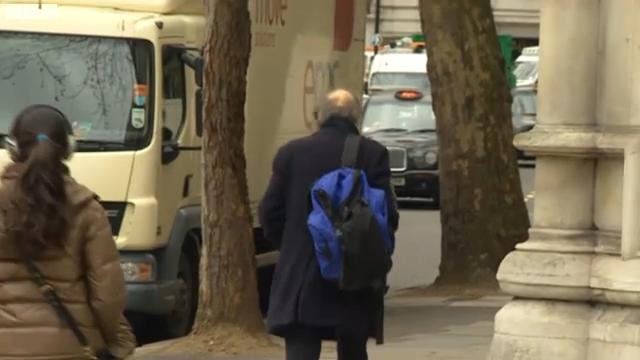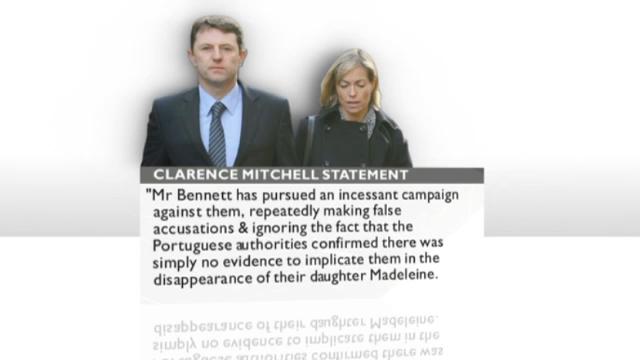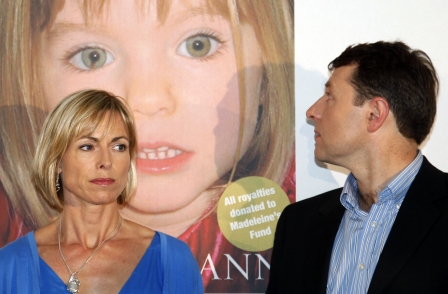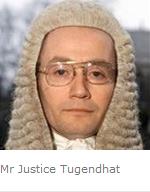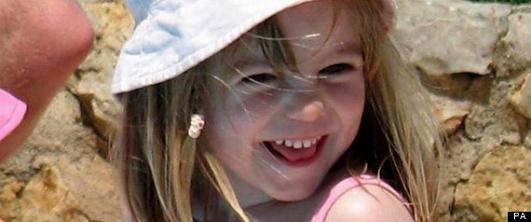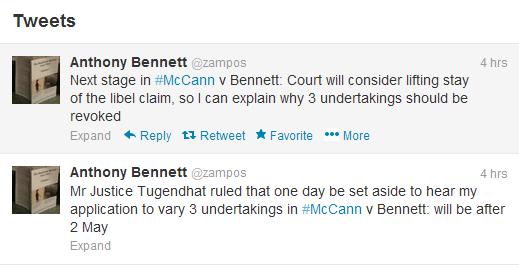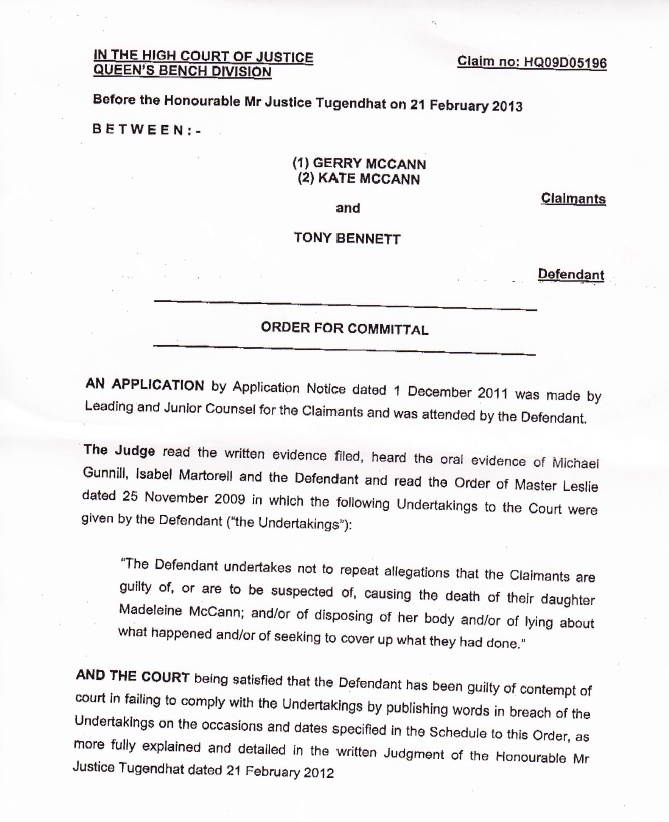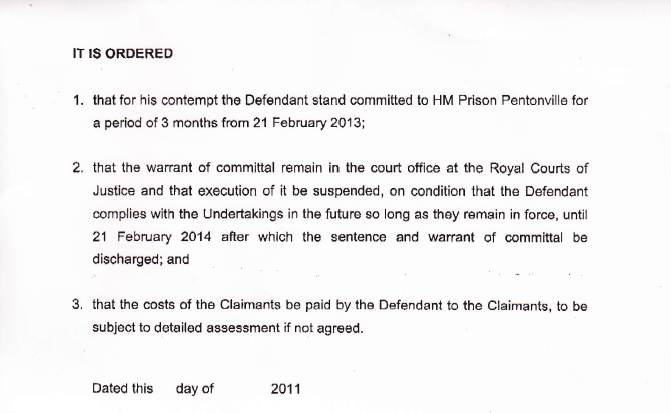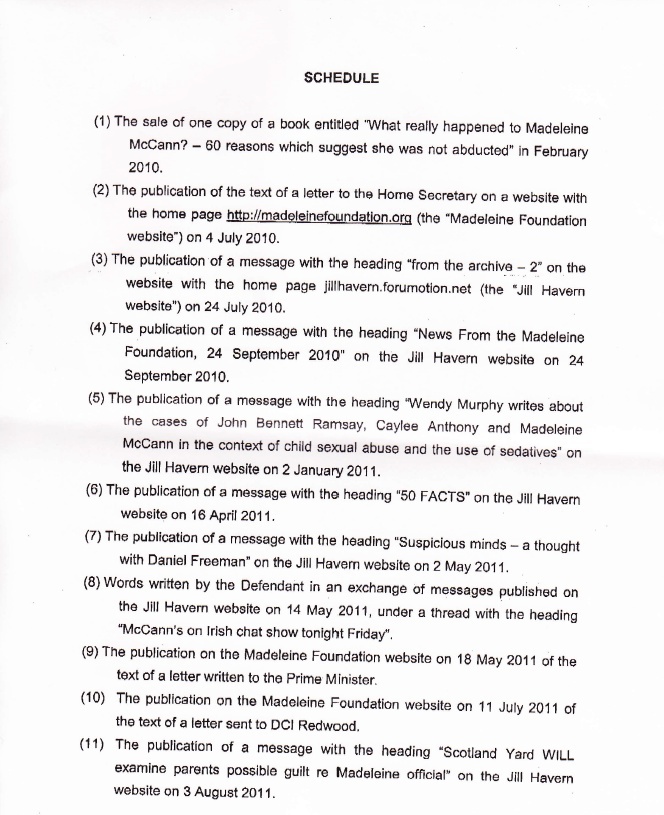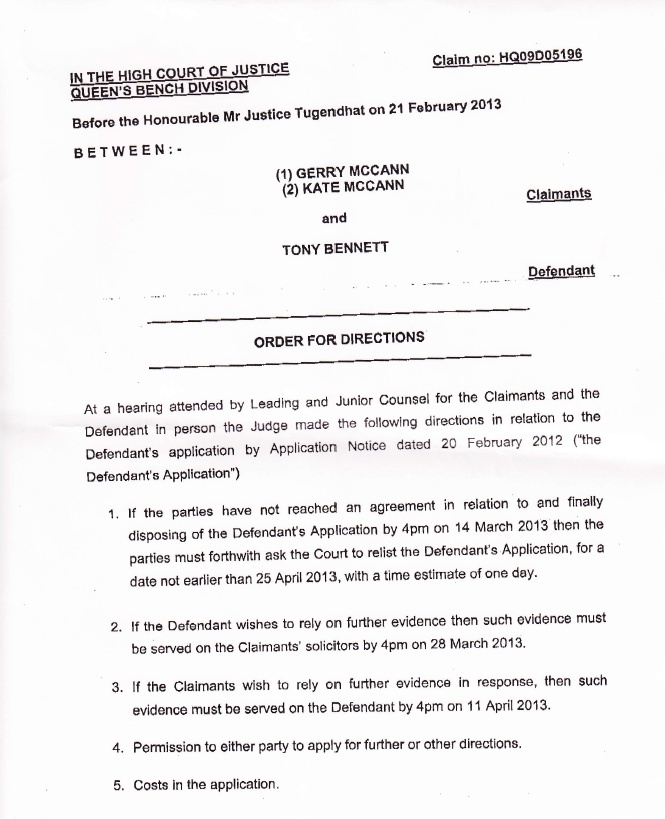My Lord,
You have found that I have been guilty of
contempt of the High Court on numerous occasions.
I will do my best to make my submission reasonably short.
On 25 November 2009 I gave a series of Undertakings. As I understand it, your Lordship has ruled that this was an
entirely voluntary agreement on my part as per the
Frank Warren v Random House case which the Claimants brought into
the case for the first time on 10 October last year. It is the breaches of that agreement to Carter-Ruck's demands which
led the Claimants to bring these proceedings.
The breaches of which you have found me guilty have a context, and
I have a few points to make about that context, none of them new, as they are all within my Affidavits and Exhibits and in
my testimony.
My Lord, it is for the Court to punish my contempt and to decide what form that punishment should
take.
However, I wish first of all to refer to the words of Isabel Martorell in her first Affidavit and then to
the words of Leading Counsel when she addressed you in her final speech on Wednesday 6 February.
My Lord, Isabel
Martorell in her first Affidavit to this Court, sworn on 29 November 2011, paragraphs 81 and 82, stated:
"The
Claimants are aware that if the Defendant is indeed found in contempt of Court, the remedies open to the Court include a sentence
of imprisonment (which may be suspended, possibly subject to conditions being imposed) as well as being fined. The Claimants
are also aware that it is open to the Court to grant an injunction against the Defendant, ordering him to abide by the terms
of the Undertakings he gave.
"It is of course ultimately for the Court to decide first, whether any contempt
has been committed and (if so) what the appropriate sanction is, having heard submissions from both parties. The
Claimants' purpose in bringing these contempt proceedings is in the hope that the Court will be able to intervene to stop
the Defendant's contemptuous conduct for once and for all.
"Accordingly the Claimants respectfully
request the Court take this consideration into account, together with the obsessive and persistent nature of the Defendant's
conduct against them to date, when deciding what sanction (if any) to apply".
On the second day of the hearing
on 6 February, Leading Counsel - fully in line with Ms Martorell's first Affidavit - referred your Lordship to press reports
surfacing that very morning in our mainstream press, which your Lordship had not seen, which stated that the Claimants were
applying to this Court to send me to prison.
To the extent that I have an accurate note, she told your Lordship:
"My clients do not wish Mr Bennett to go to prison".
"My clients do not wish Mr Bennett
to be punished in any way".
"They just want Mr Bennett to stop".
My Lord, Leading Counsel
has made a point of re-emphasising those remarks at paragraph 6 of her 'Claimants' Note', sent to me on Tuesday
afternoon. She writes: "For the avoidance of any misunderstanding as to the stance of the Claimants, they consider that
the matter is now entirely for the Court. As was made clear at the last hearing,
their application was motivated
not by a desire to see punishment meted out to the Defendant, let alone to see him imprisoned, but to put a stop to the repeated
conduct which the Undertakings were intended to prevent".
It is the case, however, that the
Claimants have incurred huge costs in this matter, and that any significant costs award against me would probably result in
my having to declare myself bankrupt, unless some kind of monthly payment of the costs is accepted.
+++++
My Lord, in paragraph 131 of your draft judgment, you wrote: "For the purposes of considering the appropriate penalty,
the court will take into account
the extent of any publication, and the
circumstances
of any publication, which the court may have found to be in breach of an undertaking or injunction".
I will first address you briefly on those matters, dealing with each of the 26 alleged breaches which faced me at
the start of the trial.
So far as item 1 is concerned, this was the claimed 'sale' of one copy of '60
Reasons' to Mr Michael Gunnill. He entrapped me into selling him one book simply because, he says, he wanted to make money
from selling a story to the
Sunday Express. When inventing an alias, and pretending he needed the booklet because
it would become 'an important historical document', he also admitted that he had already read '60 Reasons'
as it was available elsewhere on the internet. Thus he learnt nothing new by obtaining my booklet.
There is one
other thing to be said about this. It will not have escaped your Lordship's notice that Mr Gunnill, in his evidence, admitted
to the commission of a criminal offence, namely fraud, by obtaining property by deception, under what is now Section 2, subsections
(1), (2) and (3) of the Fraud Act 2006 (which was Section 15 of the Theft Act). Under those parts of the Theft Act 1968 still
in force, namely Sections 22 and 24, obtaining my booklet amounts in law to theft - and anyone guilty of handling the book
may be guilty of handling stolen property.
Item 2 is the booklet: 'The Madeleine McCann Case Files Volume 1'.
It has been on sale on the Madeleine Foundation website for 3 years, where I am told it has sold around 300 copies. It consists
entirely, as your Lordship is aware, of items made public long ago in 2008 by the Portuguese Police. The Claimants have taken
no action to date to restrain its sale.
Item 3 was an e-mail sent to a limited number of members of The Madeleine
Foundation and to a few others thought to be supporters, one of whom notified Carter-Ruck of the e-mail.
Items
4 to 9 were all items posted on The Madeleine Foundation website. This site has a few hundred visitors each month, and is
mostly visited by those who already take a sceptical view of the Claimants' claim that Madeleine was abducted.
My Lord, item 4 was the posting-up of letters by myself and two others to Theresa May, the Home Secretary, on 4 July 2010.
The immediate circumstance was an article the same day in the
Sunday Express. You have found this to breach my undertaking.
My
purpose in posting up these letters, as I hope is clear, was simply to try to obtain an assurance
from the Home Secretary that any review or re-investigation by the British Police into this case would pursue all lines of
enquiry, and not just some of them.
My Lord, in submission, similar considerations apply to the publication by
me of the letter of 18 May 2011 to David Cameron. He had, days earlier, ordered a review by Scotland Yard of the investigations
into Madeleine's disappearance. The former Chief Executive of News International, Rebekah Brooks, admitted on oath to
the Leveson Inquiry that she had, by various means, persuaded our Prime Minister to order this review. The publication of
this letter breached the undertaking. But the
purpose of the letter was clear and I suggest genuine:
we were seeking a full judicial public enquiry into all aspects of Madeleine's disappearance.
Item 9, the publication
of a letter to the head of the Scotland Yard Review Team, Detective Chief Inspector Andy Redwood, was in similar vein.
It
was designed once again to attempt to ensure that this review followed all potential lines of enquiry about what happened
to Madeleine.My Lord, dealing with item 8, this was my letter of 8 June 2011 which was the event
that persuaded the Claimants they must bring committal proceedings against me. The circumstance was that I had become aware
of letters written about me to others, on the Claimants' instructions, on 2 and 3 June.
My Lord, the next 14
items, from No. 10 through to No. 23, are all postings made on a small internet forum, the Jill Havern forum, known as 'CMOMM'
[Complete Mystery of Madeleine McCann]. It is one of 350 million or so internet sites worldwide. The following points apply
to all 14 of these postings:
1. The forum was set up in November 2009. Its membership was tiny to begin with. It
has only grown significantly in the past year or so. It now stands at over 2,200. During 2010 and 2011, when these publications
were made, the average viewing figures at any one time was between 20 and 50.
2. As your Lordship heard during
the trial, and was not contradicted by Ms Martorell, the overwhelming majority of members of CMOMM are those who do not believe
that Madeleine was abducted.
3. As your Lordship heard, all the 14 postings in question were posted on continuous
threads. The postings soon disappear from immediate view, sometimes within minutes, sometimes within an hour or two. New threads
appear all the time.
4. Some postings can be read by the general public visiting the site. As your Lordship heard,
and was conceded, other threads are only visible to those who have taken the decision to register; these are referred to as
'members only' threads. Most of these postings of mine were not normally visible to members of the general public
at all. The only reason that your Lordship was able to see them during this trial was because two researchers from Carter-Ruck
spent dozens, maybe hundreds of hours, combing for them. During the trial, I put to Ms Martorell a list of dates when the
owner of the Jill Havern forum had recorded the IP address 'Peter Carter-Ruck' visiting the forum. It was almost daily
for three months, September to November 2011. Sometimes several hours a day were spent, according to Ms Martorell, by two
members of staff. I think she said they were 'trainees'.
5. Ms Martorell did not dispute that nearly all
the other postings on the site were equally sceptical of the McCanns' abduction claim. But Carter-Ruck were only searching
for my postings.
The 14 items numbered 10 through 23 were dated as follows.
The first three were in
2010. The fourth was in January 2011. The next seven were dated from 16 April 2011 to 3 August 2011. The circumstance of these
seven, as Ms Martorell stated accurately in her First Affidavit, was the publication of Dr Kate McCann's book, 'madeleine',
and various publicity events surrounding that publication. She said that my publications at that time "appeared to be
prompted by the fact that the First Claimant was due imminently to publish a book recording her own account of her daughter’s
disappearance". That was true. It provides the context my comments at this time. Many others also reacted to the book's
publication by publishing similar comments to mine, often much less temperate.
6. The remaining three were between
17 August and 1 November 2011.
My Lord, you have found, amongst the 13 alleged breaches dealt with during the trial,
that these were all breaches of some of my Undertakings, for which I certainly now wish again to apologise to the Court.
However, the extent to which people actually read those postings was, in submission, minimal, and especially so having
regard to the mammoth publicity the Claimants have enjoyed for their account of events. Only this Sunday, for example, on
BBC TV's Andrew Marr show, the Claimants were introduced as 'being well-known nationally and internationally'.
My Lord, item 24 was a tweet on Twitter, seen fleetingly by probably no more than a few dozen people at most.
My Lord, item 25 (as well as item 14) refers to the distribution of a factual leaflet, known as '50 Facts'. I distributed
a few dozen of those leaflets in Cheshire and Rochdale. On this matter, your Lordship has ruled that: "A list of factual
statements can carry an inferential meaning of each fact, and that is very clearly the case here". My Lord, I had understood
that I was at no risk if I repeated factual material relating to Madeleine's reported disappearance. Your Lordship has
very clearly now ruled that this is not the case. My Lord, having seen your ruling on this point, it is very clear to me now
that even reciting a fact about the case risks breaching my Undertakings.
Therefore, so long as the Undertakings
remain in force, I would like to inform the Court that I shall henceforth not publish anything about Madeleine's disappearance,
not even facts. I never intended any disrespect to the Court, hoping and believing that if action were taken against me, the
Court would at the same time consider my counter-claim, as I set out in correspondence with Carter-Ruck back in 2011, telling
them that if any proceedings were brought, I would apply to revoke some of the Undertakings. I am very sorry to have broken
my promise and expect to be punished for it.
There is one further statement I wish to make to the Court at this
point. I wish to acknowledge publicly that my actions have caused distress to the Claimants. I wish also to apologise directly
to them for that distress. Accordingly, in correspondence with the Claimants' Solicitors since 6 February, I have put
forward constructive proposals for resolving outstanding matters as amicably as possible under all the circumstances.
My Lord, finally item No. 26 was the YouTube video of myself reading out the 48 questions by the Portuguese Police which
Dr Kate McCann had declined to answer. The
extent of publication was this. It was placed on YouTube
on 15 July 2010. It was removed by Google for reasons unknown the following day. That was the full extent of publication.
As your Lordship heard, the same material is available to view on the BBC and
Daily Mail websites, and many places
elsewhere. Your Lordship may also consider that the reading-out of the 48 questions was preceded by a fair introduction by
me of Dr Kate McCann's stated reasons for declining to answer those questions.
The publications now found to
be a breach of Undertaking have not been reported in the press and media, so far as I am aware, save for the briefest references,
and which references were adverse to me, in the
Daily Mail in 2011 and the
Sunday Telegraph in 2012.
My Lord, at p. 1421 in the Civil Procedure Rules is a commentary on CPR Rule 2.11. There is a headnote: 'The threshold
of seriousness', where reference is made to publications which "may be defamatory to [the Claimant] because [they
substantially affect] in an adverse manner the attitude of other people towards him, or has a tendency to do so". In
this case I appreciate that we are dealing with a breach of an Undertaking, and not defamation, but I would submit that similar
principles should apply. What is the effect of my limited-circulation publications, as against, first, the huge publicity
the Claimants have enjoyed to put over their account, and secondly, in relation the weight of material by others which also
expresses doubt about the abduction claim?
This I partly covered in my 17-page Exhibit at pages A116 to A133, where
I listed all the following publications which openly questioned whether Madeleine had been abducted or not: reports by Portuguese
and other police, books and articles - most written by experts in their fields, such as criminologists and psychologists -
websites, blogs and internet forums, YouTube videos, Facebook groups and the many individuals on Twitter who daily post messages
in opposition to the abduction claim.
Many of those publications have had much, much wider circulation than mine,
and have been published by those with far greater authority and status than I have.
I wish to finish by making
a few additional comments on the context in which these breaches of undertaking occurred.
First,
I pointed out during the trial that, in practical terms, I was the only person in the world who was not able to give an opinion
on what happened to Madeleine. Your Lordship’s response was to tell me that I was the only one to have given the High
Court any Undertakings. Nevertheless, in relation to penalty, this is in submission a highly unusual situation where everyone
else in the world is effectively free to give their opinion, and many do so every day, but one individual is not allowed to
express those very same opinions.
Second, there is the situation regarding the source material
for my views on the case, namely the book: 'The Truth of the Lie,' by the original investigation co-ordinator, Dr
Goncalo Amaral. In short, despite the Claimants libel action against him and his book, which has now run for 3 years and 8
months, his book not only continues to be sold in Portugal but has been translated into 9 European languages and is available
inover 30 countries worldwide. The Claimants have tried to stop the book, but the two highest courts in Portugal have upheld
his right to continue to sell and distribute his book, and costs were awarded against them. It is conceded by the Claimants
that they did not press their case to the full libel trial which was due to have begun on 24 January this year. They said
they were seeking a settlement. They have been unable over a period 3 years and 8 months to establish that he has libelled
them.
My Lord,
on Monday of this week it was widely reported in Portugal that Dr Amaral
had rejected offers of settlement put forward by the Claimants. The Court had set a 30-day period for any settlement to be
agreed. The matter will therefore now go to a full libel trial after all. It still remains to be seen whether Claimants can
succeed in proving to the Court that Dr Amaral libelled them (see Appendix).
Third, the Claimants
have not established in this Court or elsewhere that Madeleine was abducted. They did not supply any evidence to this Court
that Madeleine had been abducted. Their solicitor, Ms Martorell, swore on oath that Madeleine had been abducted, but admitted
to this Court that this was merely hearsay evidence from her client.
Fourth, and similarly, whilst
the Claimants received a substantial damages settlement from several British media in respect of articles they had published
in 2007 and early 2008, those settlements were out-of-court settlements and the truth of the matter was never tested in a
court of law. Neither have the Claimants established in these proceedings which began in November 2009 that I have libelled
them. In signing the Undertakings that I did, I made no concession that I had libelled them.
Fifth,
in relation to my state of mind during these breaches of my undertakings, it is I submit clear from the correspondence between
myself and Carter-Ruck over a period of two years or more that I did consider, based on legal advice received - however mistaken
I was - that I may have a valid defence to any possible contempt of court or libel action.
That view might have
been right if the Claimants had elected to lift the stay on proceedings and revived their Libel Claim. However, they elected
instead to pursue the narrower, more specific, contempt of Court route.
Sixth, there is the degree
of my compliance with the undertakings.
Apart from the 'sale' of one copy of '60 Reasons' to Mr
Gunnill, the evidence was that I complied strictly with all the Undertakings in Schedules A and B requiring me not to sell
or distribute certain named books and leaflets, to close a website, and to remove certain postings from various websites.
You saw and heard evidence that I wrote to booksellers telling them that my book could no longer be sold. You saw and heard
evidence that as soon as I became aware of any places on the internet where '60 Reasons' was available to read, I
immediately wrote to the website owner asking for it to be removed. The breaches which have been proved are all under Schedule
C, which deals with my opinions on the evidence.
Your Lordship has seen the extent to which I complied with requests
made in Carter-Ruck's three letters of 5 February, 15 July and 3 August 2010.
Your Lordship will also have
seen the comments by Ms Martorell at paragraphs 49 and 50 of her First Affidavit where she stated: "At that time [meaning
October 2010], the Claimants once again hoped that they may not need to escalate matters against the Defendant by bringing
contempt of court proceedings, a step which they (understandably) did not wish to take
unless it appeared absolutely
necessary. For a time, the Claimants' decision appeared to be justified,
as it seemed that the
Defendant was not continuing to breach the undertakings which he had given”.
Seventh,
there are the words of the Claimants and their spokesman. In January 2011, the Claimants' chief public relations spokesman
spoke of Madeleine's abduction as a hypothesis or an assumption. Later, on oath before the Leveson Inquiry, Dr Gerald
McCann said he was a strong believer in the freedom of speech, said he had no objection to people propounding theories, and
added that his only objection was to people getting their facts wrong. I accept that the Court has ruled that these statements
do not help me at all in relation to the seriousness of breaching an Undertaking. But they provide context and background
for those breaches.
Eighth, the Claimants' stated motivation for bringing these proceedings
was set out by Ms Martorell as follows: "Our clients' overriding purpose in bringing complaints against you has always
been to prevent your dissemination of false and defamatory allegations about them which risk causing damage to the ongoing
search for their daughter, in addition to unjustifiable damage to their reputation". My Lord, having regard to the full
extent of the widespread publicly-expressed disagreement with the Claimants' account of events, and the limited circulation
of my publications, I would suggest with respect that my publications have not to any substantial degree either damaged the
ongoing search, nor damaged the Claimants' reputation. A number of 'sightings' of Madeleine have been reported
recently, in India, Brazil, New Zealand and possibly Ukraine, suggesting that nothing I have said has in any way hindered
any individual from searching.
Ninth and finally I wish to mention the issue of proportionality.
There was evidence laid before the Court that the Claimants were powerless to restrain the extent of public disagreement
about their account of Madeleine's disappearance. On top of that, they have failed to date to control the source book
on which I rely, Dr Amaral's 'The Truth About A Lie'.
It was admitted by Dr Kate McCann in her book
that the Claimants were effectively powerless to control the dissent on the internet, which she admitted was
'widespread'.My Lord, I had hoped that the argument that I was the only one being restrained would assist me. Clearly it does not.
However, I hope you will be able to take into account in deciding penalty both the circumstances under which the Undertakings
were given, and the fact that I alone face punishment for my opinions on Madeleine's disappearance. I recognise that my
allegations against the Claimant are serious. Breaching a Court Undertaking is serious. But in terms of proportionality, I
appeal to you to take in to consideration the admitted inability of the Claimants to control the dissent anyone else bar myself.
As to my motive, My Lord, you are the judge of that, but I trust that there is a great deal of evidence before you
that, however misguided some of my actions have been, the motive has always been to search for the truth, to pursue the route
of a full public enquiry into all aspects of this mystery, and to ensure that the current Scotland Yard review does what all
police cold case reviews should do, namely consider all options, based on a wholehearted search for the truth without fear
or favour.
My Lord, as to the Court's powers on costs, these are I believe in the Civil Procedure Rules, paragraph
44. In paragraph 44.3, subsection (4), where it states that when exercising its discretion on costs, the Court will consider
the circumstances including the conduct of the parties. My Lord, in the light of Leading Counsel stating before your Lordship
that the Claimants did not wish the Court to punish me in any way, I do not know how far they intend to press any claim for
costs against me.
I have here a statement of means.
I also have the two testimonials as to character
handed to me prior to the trial. They were at pages
A752 to A754 of my Bundle. My only sibling, my brother
also says he wrote you a letter last week.
There is one final matter I wish to raise, my Lord, and that is the
question not of what punishment I deserve, but of
when any sentence should be handed down. There
is before the Court the Claimants' application to commit me to prison. However, there is also my cross-application to
be relieved from three of the sixteen Undertakings I gave. The two matters have been separated, but are clearly linked.
Your Lordship ruled earlier that my application to vary three Undertakings 'will be treated as an application
to lift the stay on the libel proceedings'. As I understand it, the Claimants strongly oppose the lifting of the stay.
There will be a hearing about this, I am not sure when.
It is possible that that hearing may result in the stay
being lifted; if not, I will remain bound by these three Undertakings until I die, unless there is an unexpected and exceptional
new development.
If the stay is lifted, I think your Lordship has indicated that there will be a libel trial in
some form or other. In any such proceedings, my case as to whether I have ever libeled the Claimants will be heard. It may
be that the libel Court will find that I have valid statutory defences to an action for defamation for all the comments which
you have held to breach my Undertakings. I would then be being punished, or would have been punished, for making statements
which were never libellous in the first place.
It is also possible that my allegations are true.
I therefore
invite your Lordship to consider postponing sentence until at least after the application to lift the stay has been determined
- and, if lifted, until after the libel trial, whatever form that may take.

